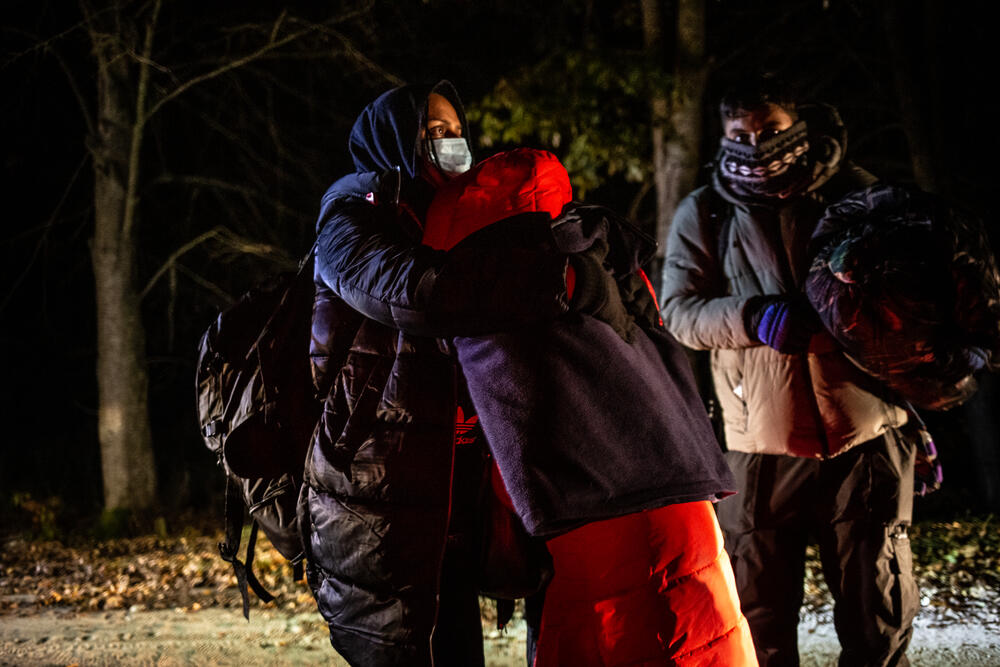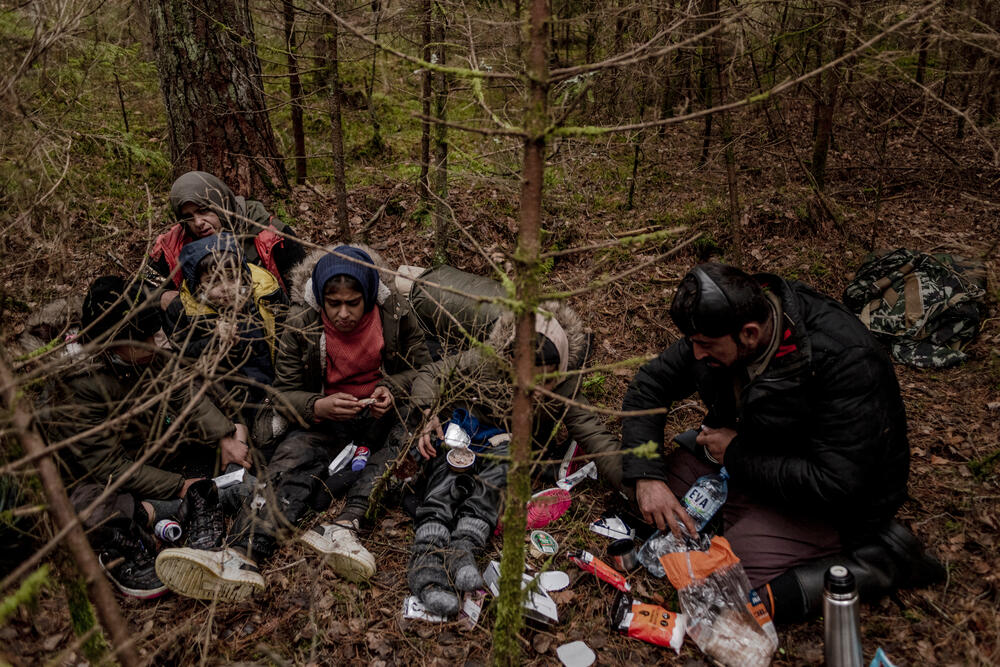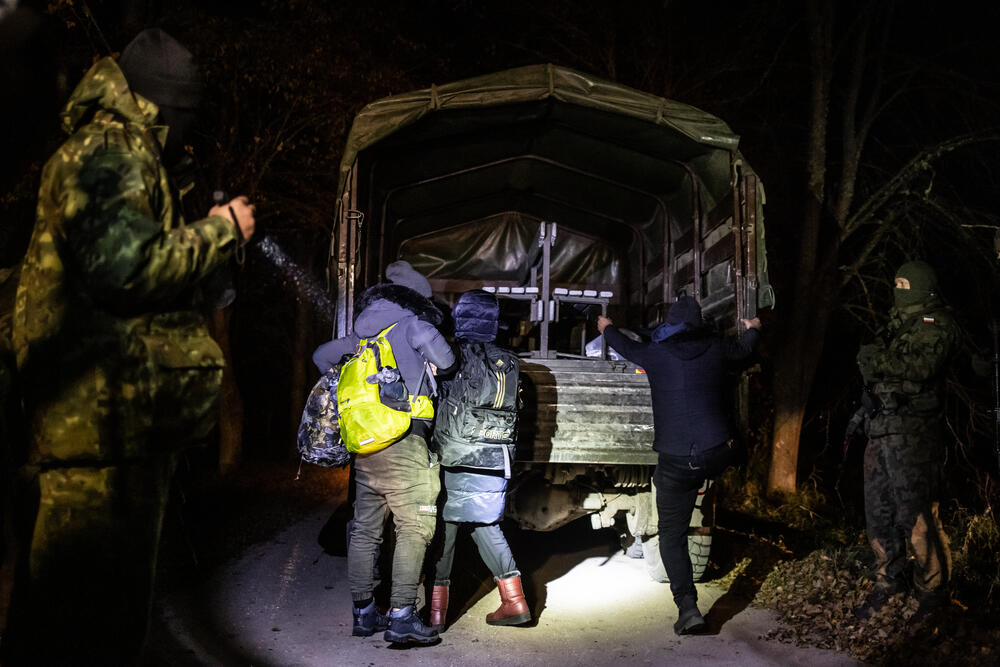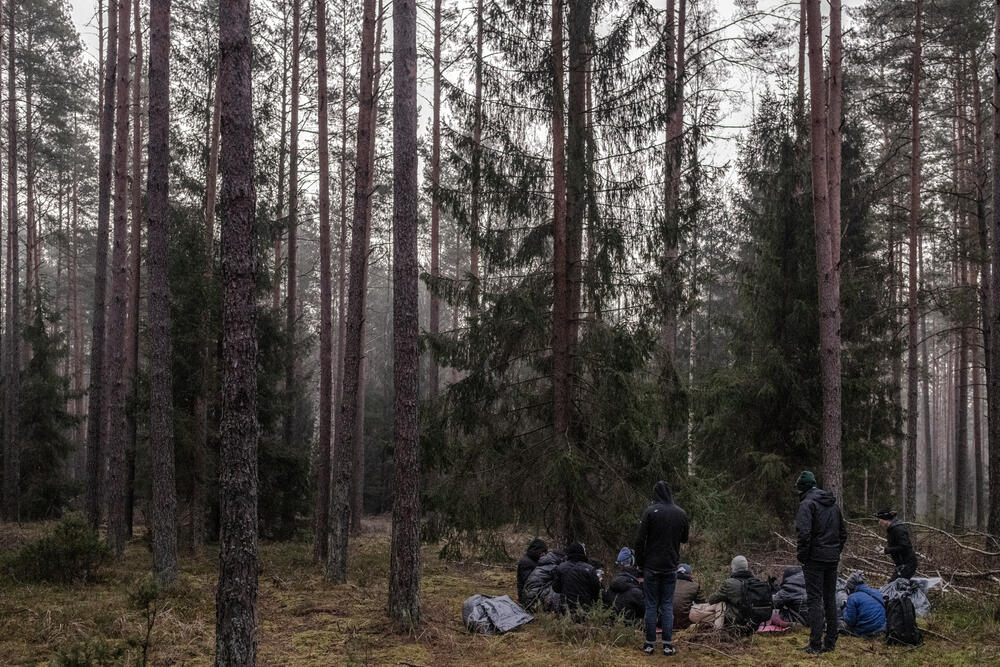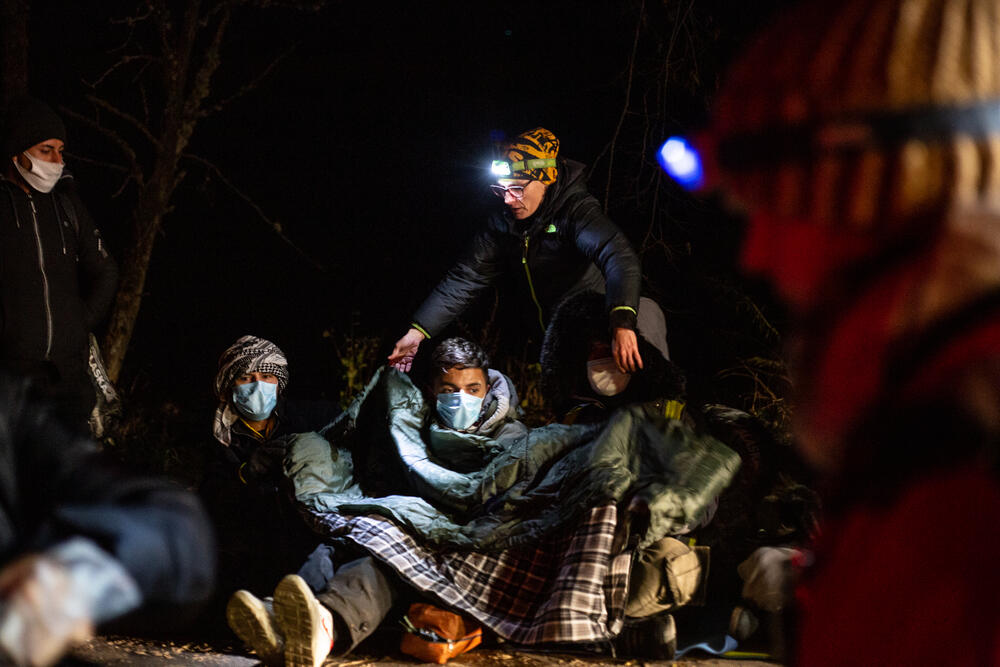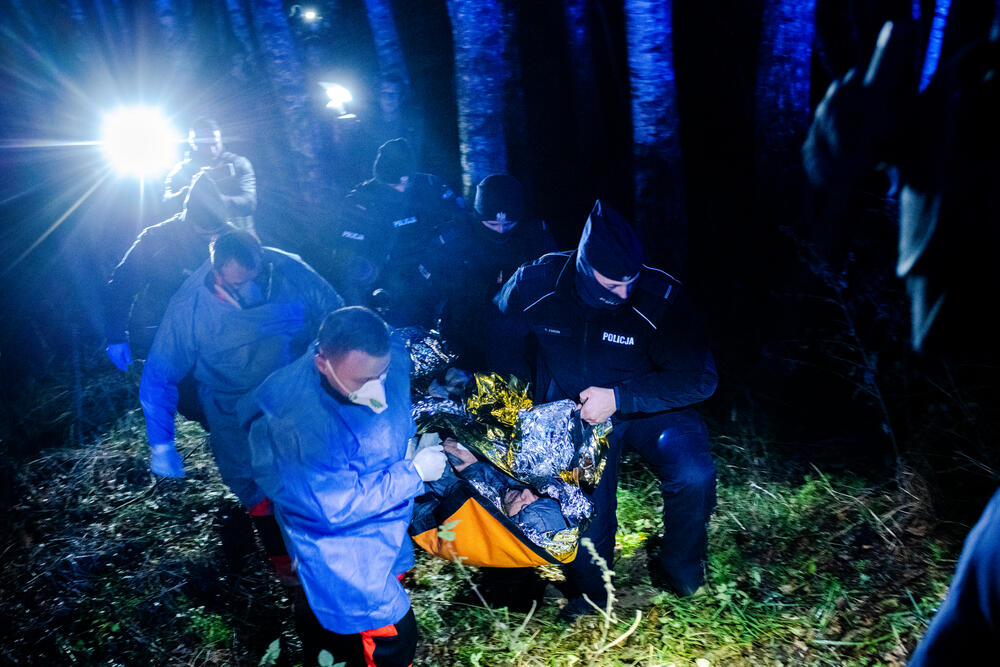Poland-Belarus border: “We don’t want people to die in the freezing forest”
As the Poland-Belarus border crisis continues, aid organisations and volunteer groups are being prevented from accessing the Polish side of the border zone.
Residents living in and around the restricted area are now the only people able to reach vulnerable refugees and migrants in need.
But, providing such help is considered illegal, meaning that reaching the men, women and children stuck in bitterly cold conditions has become a clandestine and dangerous undertaking.
Médecins Sans Frontières / Doctors Without Borders (MSF) teams have withdrawn from the Polish border area after being blocked for months by the authorities. However, we want to share the concerns of the people left helping those hiding in the freezing forests.
“Local volunteers are vilified and intimidated to stop them from providing support," says Frauke Ossig, MSF emergency coordinator for Poland and Belarus.
"It is utterly unacceptable."
These are the voices of just three of the people we spoke to: Zosia, Marek and Sylwia. Their names have been changed to protect their identity.
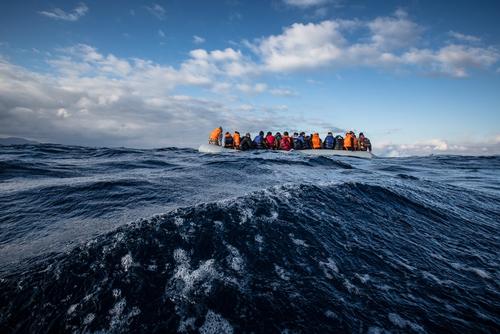
How has your life changed since the crisis began?
“At first, we just heard about people crossing the border and saw photos because people couldn’t pass through our area as there are swamps everywhere. But I’m afraid there are some bodies in these swamps.
“Then the state of emergency was established. I live outside of the zone but close by, and so I crossed the zone many times. For my friends who live inside the zone, I think it is much harder because they meet armed soldiers all the time. The children are often scared.”
Zosia
“Our life has changed in many ways: restless nights, nervous tension, fear that helping refugees will be seen as involvement in human trafficking and smuggling, fear that right-wing circles might take revenge on the people helping.
“Freedom of movement has been restricted and tourism is impossible. Despite everything, we have grown closer in our immediate family. We talk about it a lot and I have a lot of anger about it. I burden myself with my thoughts, but I have support from my wife and our eldest son.”
Marek
“It is a depressing situation; we have to remember to carry all our documents, even while walking the dog. Every hotel, hostel, guest room – everything is occupied by military services. The fact that you cannot invite guests, family or friends here also makes it difficult. It is hard when you are separated from the rest of the country.”
Sylwia
What problems have you faced by helping people?
“I was helping one group of people who were in very poor condition and we called an ambulance. We of course knew that the ambulance would come with the border guards, but it was impossible for us to leave them alone.
“The group that came were border guards, but they didn’t have insignia and they started to threaten us. They said that we were there illegally, that we were smugglers. They were also very hostile towards the refugees.
“We felt like we were in a trap. We were afraid – not for ourselves, but these people.”
Zosia
“Once I was accused of ‘supporting terrorists’ and ‘acting to the detriment of the Polish state’. Someone cleaning in the forest was detained by uniformed servicemen and questioned. Someone's house was pelted with eggs.
"Outside the zone, right-wing activists congregated in front of a house of people helping refugees to intimidate them."
Marek
“In the beginning, they tried to tell us that it was illegal to help, to intimidate us. There are people who are ideologically ‘defending the borders of their homeland’ who are in favour of the protection by the soldiers and who believe that the people in the forest are criminals.”
Sylwia
Do children understand what is happening?
“My daughter came back from kindergarten once and told us that we were supposed to help the soldiers. That the refugees would throw stones towards her kindergarten and that refugees were bad people.
“My husband tried to explain to her it was not true, but she didn’t want to listen. So. I had to tell her many things that I wouldn’t have normally told her because I’m not sure that a little girl should know that there are children in the forest. I had to tell her because she asked me many questions.
“My 11-year-old son has more problems with it. He has also heard many horrible things at school and as he understands more I think it’s hard for him to hear about dead bodies.”
Zosia
“I hear about other people’s children drawing checkpoints and tanks. I see playgrounds ripped up by military equipment and military cars parked right next to schools and kindergartens.
“A friend of mine, a young father, finds it very difficult to explain to his children what is happening. But I am wondering how we could have done better with everything that is going on."
Sylwia
Does your community support you helping people in need?
“People in my village know what we are doing through word of mouth. We don’t talk about it and I can imagine what they think about it. But on the other hand, we have had amazing support from our friends, many of whom came here to help us.
“This is very important for me when I go to the forest and I feel that I’m not alone. I’m doing it in the name of a really big group of people.”
Zosia
“The family with whom we spent Christmas did not even ask us about the situation. People shy away from it, they do not want to spoil their wellbeing. They had the chance to ask us – people who live in a restrictive zone – and yet nobody was interested.”
Marek
“The community is once again divided into those who are happy with the services that defend the border and those who cannot remain indifferent. The military would like no one to talk about anything and everyone to sit quietly and pretend not to see anything.”
Sylwia
Do people living in the restricted zone get mental health support?
“My son is talking to a psychologist, although he doesn’t speak much about it. It’s free, and we have support for ourselves and the children that is easy to get.”
Zosia
“I know of several people who have been traumatised by seeing families hiding in the bushes, seeing them captured by border guards and later finding out that they had been taken behind the wire fences again.
"People who work in cooperation with Grupa Granica (a collection of Polish NGOs responding to the crisis) have access to free psychological assistance. The group helps the volunteers in the area. Without them, the situation would be very difficult.”
Marek
“There is no systematic support from the municipality. However, there are meetings outside the zone with psychologists. The offer has been passed on in Facebook posts from a list of professionals who are ready to help.”
Sylwia
What needs to be done about the crisis?
“The most important thing is that the government stops the pushbacks. We need the government to change the law and to wake up.
“We need people to start thinking about what is going on here and we need big organisations to get into the zone despite the current law. It is outrageous that organisations accept these restrictions. It is against the law to let people die in the forest.
“I also want to thank all the people who support us. Every single person who is sending us things is a part of this big helping network, and only together can we do as much as we do.”
Zosia
“We want an end to restrictions on movement for the local residents and an end to the extreme militarisation of the border zone. We don’t want people to die in the forest.
“We want to help people in need no matter where they are from. We have been brought up with certain values and we have to live according to these values to help those in need.”
Marek
“We need a humanitarian corridor, and we need support to inform people at home and around the world about what is really happening.
"Those in power and those giving orders must see the migrants as people and give them dignity and respect as people in need.”
Sylwia
Tell the UK Government to fix its inhumane 'Borders Bill'
Our staff have seen some of the world’s worst examples of the abuse and mistreatment of vulnerable refugees.
From the Greek islands, where children are packed into dangerous, filthy camps at a terrible cost to their mental and physical health, to Libya, where people, including pregnant women and babies, are rescued in the Mediterranean and pushed back into terrifying detention centres – Médecins Sans Frontières / Doctors Without Borders (MSF) medical teams have seen the worst.
